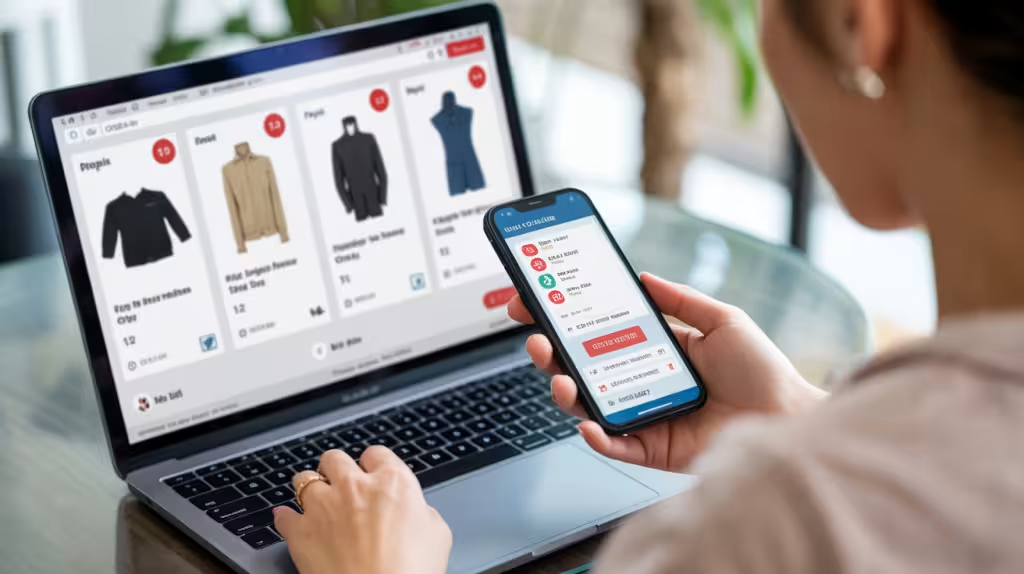The email arrived on a Tuesday morning, bright and cheerful in my inbox. It was from my niece, Sarah. The subject line was just a string of exclamation points. Inside was the official announcement for her college graduation from Boston University. A real, in-person ceremony. My heart swelled with a fierce, uncomplicated pride.
Sarah is my sister’s youngest, a whip-smart and funny young woman I hadn’t seen in person since before the world turned upside down a few years ago. Phone calls and video chats are one thing, but the thought of being there, seeing her walk across that stage in her cap and gown… it felt important. It felt like something I needed to do.
Then, a familiar and unwelcome feeling crept in, a cold little knot in the pit of my stomach. Boston. Graduation weekend. My mind, trained by years of careful budgeting, immediately started doing the math. Flights. Meals. And the big one: a hotel. I live a comfortable but careful life on a fixed income. Lavish trips to major cities aren’t exactly a regular line item in my budget. Still, I told myself, this was different. This was for Sarah.
The Sticker Shock and the Sinking Feeling
That evening, with a cup of chamomile tea by my side, I sat down at my desktop computer, full of optimism. I opened my web browser and typed in the name of one of those big, familiar travel websites I’d seen advertised on television for years. I plugged in the dates for the graduation weekend and searched for hotels near the university.
The results loaded. I leaned in closer to my screen, squinting a little. Then I leaned back, my breath catching in my throat. The prices were staggering. $350 a night. $425 a night. $550 a night for a hotel that looked perfectly ordinary.
My heart sank. It felt like a punch. These weren’t luxury suites; they were standard rooms with two queen beds and a mini-fridge. I knew it was a big weekend in the city, but I hadn’t prepared myself for this level of expense. I tried another website, and then another. The story was the same everywhere. The numbers stared back at me from the screen, cold and unmoving.
I pushed back from my desk and walked over to the window, looking out at the quiet street. The pride I’d felt just hours before was now tangled up with a heavy sense of disappointment. It wasn’t just about the money. It was about what the money represented: a barrier. A wall between me and this moment I so desperately wanted to share with my niece.
My mind started to race through the justifications for not going. “It’s just too expensive, honey,” I imagined myself saying to Sarah on the phone. “I’ll send you a wonderful gift instead.” I could picture her understanding voice, telling me it was okay, that she knew I’d be there in spirit. But it wouldn’t be the same. I wanted to be there in person, to give her a real hug, to see the joy on her face with my own two eyes.
For a couple of days, I felt genuinely defeated. The dream of the trip seemed to be slipping away, dissolving into a pragmatic, responsible, and deeply unsatisfying decision to stay home.
A Lifeline from a Friend
That Friday, I was on my regular weekly call with my old friend, David. We’ve known each other since our twenties, and there’s not much we don’t talk about. I eventually confessed my Boston conundrum, the frustration and disappointment bubbling up in my voice.
“I just can’t believe it, Dave,” I said, pacing around my kitchen. “Five hundred dollars a night for a place to sleep? It’s madness. I think I’m going to have to skip it.”
David listened patiently, as he always does. When I was done, he didn’t offer sympathy. He offered a question.
“Have you tried looking on one of the deal apps on your phone?” he asked.
I stopped pacing. “A what? You mean like for groceries?”
“No, for travel,” he said. “There are a bunch of them now. They find last-minute deals or hidden prices the big sites don’t always show. I used one last year to go visit my son in Chicago. Got a great hotel right on the Magnificent Mile for a fraction of the listed price.”
I’ll be honest, my immediate reaction was skepticism. Deep, ingrained skepticism. I use my smartphone for calls, for texts, for checking my email and looking at pictures of my grand-nephews. The idea of downloading an unfamiliar application and, even more terrifying, entering my credit card information into it, felt foreign and risky.
“Oh, I don’t know, Dave,” I hesitated. “I’m not very good with that stuff. What if it’s a scam? How do you know if it’s safe?”
“They’re big companies, Martha,” he said calmly. “They’re perfectly safe. Just look for one with lots of good reviews. It’s no different than buying something from Amazon. It just takes a little getting used to.”
His confidence was reassuring. More than that, the flicker of hope he’d ignited was enough to overcome my technological anxiety. The thought of seeing Sarah’s graduation was a powerful motivator. What was the worst that could happen? I could download it, look around, and if I didn’t like it, I could just delete it.
“Okay,” I said, taking a deep breath. “Which one do you recommend?”
He gave me a couple of names. That afternoon, I sat on my sofa, phone in hand, and navigated to the app store. I typed in the name David had mentioned most enthusiastically—I’ll call it “HotelHawk” for this story. I saw it had millions of downloads and a high star rating. I took that as a good sign and pressed the “Install” button. The little circle spun, and a new icon appeared on my screen. I had taken the first step.
My Journey into a Digital World of Deals
Opening the HotelHawk app for the first time felt like stepping into a foreign country where I didn’t speak the language. There were buttons, filters, and a map that seemed to move with a life of its own. My first instinct was to close it and forget the whole thing.
But I thought of Sarah. I forced myself to be patient. I started by just tapping things to see what they did. I typed “Boston, MA” into the search bar and put in the graduation dates, just as I had on the websites. The results that came back were… better. Not half-price yet, but I was seeing hotels for $280 or $300 instead of $400. It was a tangible improvement. That little spark of hope grew brighter.
This, I realized, was going to be a process. It wasn’t a magic wand. It was a tool, and I needed to learn how to use it. Over the next few days, I became a student of the app, and my living room became my classroom.
Lesson One: The Power of Flexibility
My first breakthrough came when I started playing with the dates. The graduation was on a Saturday. My initial plan was to fly in Friday and leave Sunday. On a whim, I changed my search. What if I arrived on Thursday instead?
The difference was immediate and dramatic. The price for a three-night stay from Thursday to Sunday was, at many hotels, significantly cheaper per night than a two-night stay from Friday to Sunday. The hotels were clearly hiking their prices for the peak Friday and Saturday night demand. By adding a less-in-demand Thursday night, the average nightly rate dropped. It felt like I’d discovered a secret code. Flexibility wasn’t just a convenience; it was a currency.
Lesson Two: Location is Relative
My next discovery came from the map view. At first, I was hyper-focused on finding a hotel within walking distance of the university. But those were, of course, the most expensive. I zoomed out on the app’s map and started looking at the surrounding areas. I saw neighborhoods like Brookline and Cambridge.
This led me to do some old-fashioned research. I opened a new tab on my computer and looked up Boston’s public transit system, the “T.” I found a subway map and cross-referenced it with the hotel map on the app. I started looking for hotels that weren’t necessarily next to the university, but were close to a T-stop on a line that went directly there.
Suddenly, a whole new world of options opened up. I found a lovely-looking hotel in Cambridge, with great reviews, that was a two-minute walk from a T station. The ride to the graduation venue would be a straight shot, maybe 20 minutes. And the price? It was nearly $100 less per night than a comparable hotel right next to campus. I was learning to think like a local, not a tourist. The goal wasn’t to be the closest; it was to have the easiest access.
Lesson Three: The “Mystery” and My Detective Work
This was the part that truly tested my nerve, but also yielded the biggest reward. As I scrolled through the listings, I kept seeing something called a “Secret Saver” or “Mystery Deal.” The app would offer a massive discount—sometimes 40-50% off—on a hotel, but there was a catch: it wouldn’t tell you the name of the hotel until after you made a non-refundable booking.
My initial reaction was, “Absolutely not.” It felt like gambling. What if I ended up in a rundown, dirty hotel? The risk seemed too great. I ignored these listings for a full day.
But they kept taunting me with their low prices. One, in particular, caught my eye. It was listed as a “4-Star Hotel in the Back Bay/Fenway area.” The price was an unbelievable $199 per night. This was less than half of what I was seeing for other 4-star hotels in that same, very desirable neighborhood.
I decided to become a detective. The mystery listing wasn’t completely blind. It gave me crucial clues:
- The star rating: 4 stars
- The general neighborhood: Back Bay/Fenway
- A list of amenities: Pool, Fitness Center, Restaurant, Pet-Friendly
So, I put my plan into action. I kept the HotelHawk app open on my phone. On my desktop computer, I opened a regular map of that neighborhood and filtered for 4-star hotels. Then, I began the process of elimination. I’d look at a hotel on the map, click on its profile, and check its amenities.
“Okay, The Colonnade Hotel… 4-star, in the area… does it have a pool? Yes. Fitness center? Yes. Restaurant? Yes. Is it pet-friendly? Yes.” I made a mental note. It was a suspect.
“Next, the Hotel Commonwealth… 4.5-star, okay, close enough. Pool? No. Okay, it’s not that one.”
I did this for about half an hour, cross-referencing the clues from the mystery deal with the public information for about a dozen hotels. I managed to narrow it down to two highly probable candidates. Both of them had excellent reviews, looked beautiful in their photos, and were in fantastic locations. The risk no longer felt like a blind gamble. It felt like a calculated, educated guess between two great options.
I was ready to take the leap.
The Thrill of the Booking
My hand was literally trembling a little as I held my phone. I had the “Secret Saver” deal pulled up. I had my two prime suspects. I knew that no matter which one it turned out to be, I was getting an incredible bargain. It felt like I was on the verge of a great victory.
I took a deep breath, tapped the “Book Now” button, and carefully entered my payment information. My heart was thumping. I reviewed the details one last time—the dates, the non-refundable policy, the total price. It was real. I hit the final confirmation button.
A loading screen spun for a moment that felt like an eternity. And then, the reveal: “Congratulations! You’re staying at The Colonnade Hotel!”
I let out a little gasp. It was my number one suspect! I immediately switched back to my computer and pulled up the hotel’s regular website. For my dates, they were advertising their rooms for $450 a night. I had just booked one for $199 a night. I did the math—it was a 55% discount. I had actually done it.
The feeling was more than just relief. It was a profound sense of accomplishment. I hadn’t just saved over $750 on my hotel room; I had navigated a new technology, trusted my own research, and beaten the system. I felt capable and resourceful. I, Martha, a woman who just a week ago was intimidated by the very idea of a new app, had become a deal-hunting detective.
The Trip That Almost Didn’t Happen
The trip to Boston was everything I had hoped it would be. The hotel was gorgeous, with a rooftop pool and a beautiful room that looked out over the city. I felt a little thrill every time I walked through the fancy lobby, thinking of the deal I’d gotten.
But the hotel was just the setting. The real prize was the trip itself. That saving of over $750 wasn’t just a number in my bank account. It was freedom. It was the money that allowed me to take Sarah out for a celebratory graduation dinner at a nice Italian restaurant in the North End without worrying about the bill. It was the money that let me buy her the beautiful leather portfolio she’d been wanting for her job interviews, instead of just a card.
On Saturday, sitting in the packed stadium, watching the sea of graduates in their black robes, I spotted Sarah. Her smile was a beacon. When her name was called, I jumped to my feet and cheered so loud my throat hurt, feeling nothing but pure, unadulterated joy. There was no cloud of financial stress hanging over me. I was completely and totally present in the moment.
Later, as we were having that dinner, I told her the whole story—the sticker shock, David’s advice, my detective work with the mystery hotel. She looked at me, her eyes wide with admiration.
“Aunt Martha, that’s amazing!” she said. “You’re like a secret agent for travel deals.”
I laughed, but I felt a swell of pride. In that moment, I wasn’t just her old aunt; I was someone who had cleverly navigated the modern world to make something important happen.
What This Journey Taught Me
Coming home from that trip, I felt changed. The experience taught me so much more than just how to find discounts on hotels. It taught me some important lessons about myself and about navigating life in today’s world.
First and foremost, I learned that it’s not about being cheap, it’s about being smart. Saving money on the necessities, like a place to sleep, frees up your resources for the things that truly create memories. The goal of a budget isn’t just to restrict you; it’s to empower you to spend on what you value most.
I also learned to never be afraid of learning a new tool, no matter your age. I had allowed myself to believe that certain technologies were “for young people.” It was a limiting belief that almost cost me a priceless experience. These tools aren’t as scary as they seem, and the empowerment you feel from mastering one is a reward in itself.
Finally, I learned that with travel, patience and flexibility are your greatest assets. The best deals rarely come from the first, most obvious search. By being willing to shift my dates, reconsider my definition of a “good location,” and do a little extra research, I unlocked a level of savings I never thought possible. I now see that I have far more control over my travel costs than I ever imagined.
That trip to Boston was a turning point. It wasn’t just a trip; it was proof. Proof that with a little courage and a willingness to learn, the barriers that seem so solid can often turn out to be surmountable. And the reward on the other side—a hug from someone you love, a shared celebration, a memory that will last a lifetime—is worth every bit of the effort.















